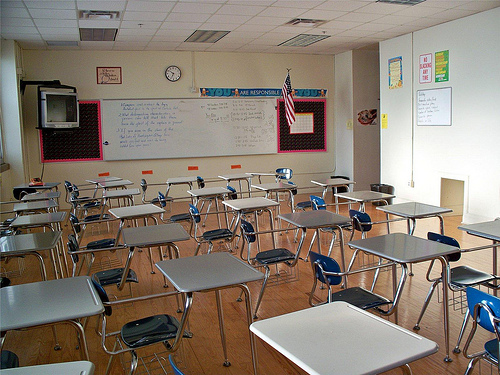One of the main reform on the Italian political debate is “La Buona scuola”, a reform of the education system, which was strongly desired by the prime minister Matteo Renzi. The reform is become law only few days ago but it is actually disapproved by the political oppositions and especially, by labor unions and teachers who work in the public schools. Indeed many battles and demonstrations are made and will be made in the next months against “La Buona scuola”.
The main criticism are that the government want to grow weak the public School (probably supporting the private institutions), it want to grow weak the independence of teachers and that this reform won’t be able to resolve the real problems of the Italian school. Truly the school’s problems are so many: the public School has bad conditions due to years and years of bad choices –made by everybody- and to policies that have removed so many funds to education.
The most challenged aspect of the reform is the growth of the power of the school manager: detractors have called this new figure, “headmaster-sheriff”; with this new law the headmaster will have substantially the power to choose the teachers to hire, to evaluate the teaching staff, to reward good teachers (above all economic award) and to assign substitutes.
Teachers have protested against this choice because they feel judged and they fear the new figure of sheriff headmaster could select only those teachers who want him. Surely there is risk of clientelism (an Italian disease difficult to clear) but we have to admit that as it is today the headmaster-teacher relationship is not properly working. The current system is not based at all on merit and concretely there are no sanctions for teachers absentee or slackers (and as in all the categories there are).
The other important points of the reform are a chance for students to choose optional subjects to add to their resume, a plan for school construction and especially the extraordinary plan of hiring of 100,000 temporary teachers and of those who have won the competition in 2012. The great problem of the school is the economic one: many times the funds were taken away to education and today Italy is in Europe with Greece, the country that spends less on education. The school buildings are crumbling or ruined, technology is often absent in schools, teachers are among the lowest paid in Europe, the tools are inadequate. It less a real development project for the Italian school. We need money, time and new forward-looking ideas in order to improve the Italian school and bridge the gap with other European school systems. The hope is that despite large protests and the lack of large financial, this reform of the school may be a first step towards a new school; if it were not so, it will be unfortunately another reform which will weaken even more the public school.

